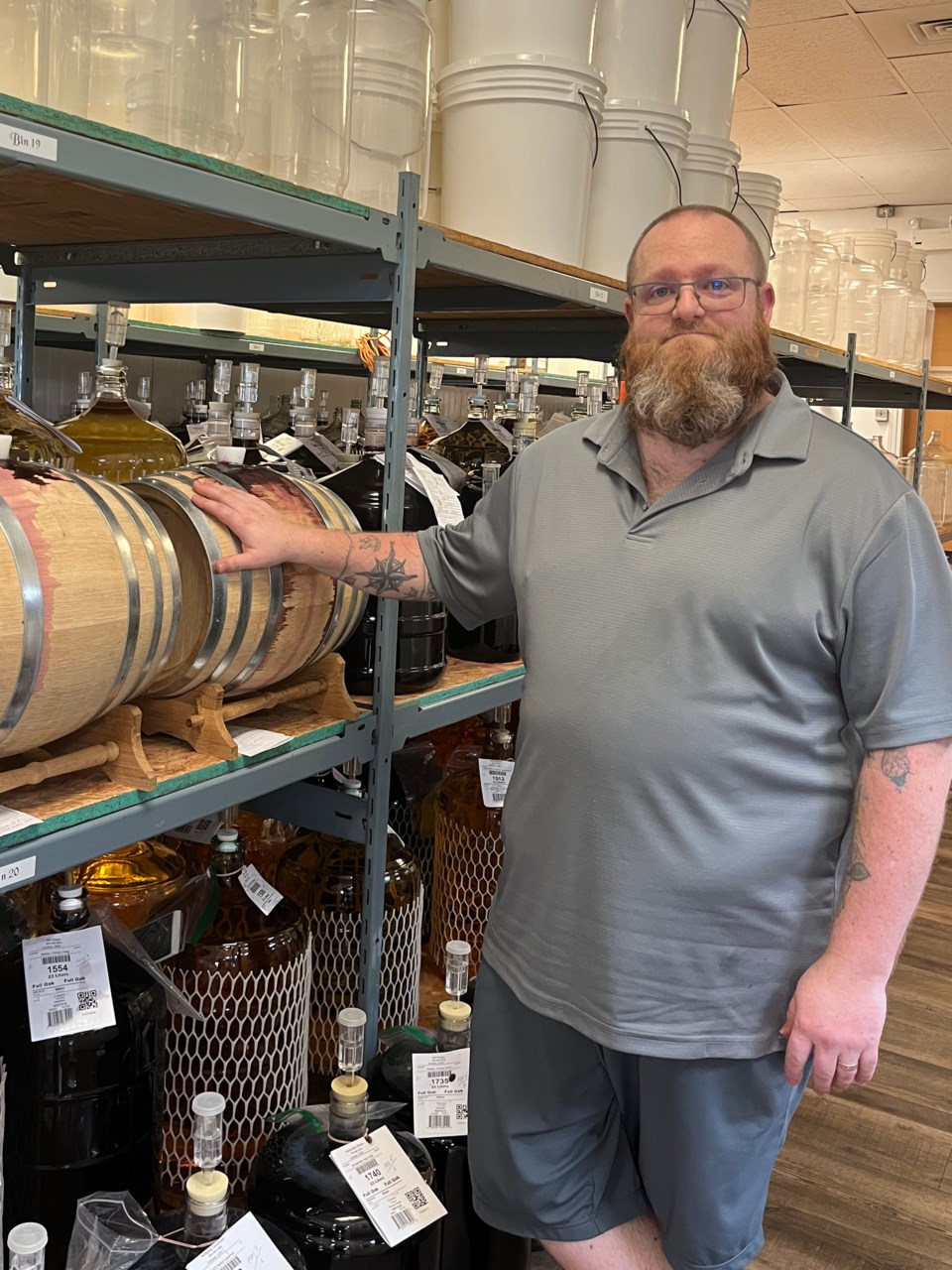Although wineries on Vancouver Island haven't faced the same challenges as other parts of the province, the climate-related winter freeze and wildfire events has hit the BC wine industry on multiple levels and may have ripple effects.
In a media release from Wines of British Columbia, a study commissioned by the BC Wine Grape Council (BCWGC) outlined recommendations and financial needs required for the future success of the industry.
In order for the BC wine industry to recover from a drop in tourism and reduced grape yields, BCWGC stated that funding for a crop renewal program is needed to the tune of $162 million to $317 million dollars, due to winter damage and a permanent viral disease.
Consumer habits and interprovincial trade rules in Canada have also been impacting the industry, but all is not lost. The industry has faced challenges in the past, pivoted and recovered.
Westview U-Vin-U-Brew owner and operator Jeremy East follows wine industry news very closely, and has a positive outlook for the future of wine and wine making.
"It [Southern Okanagan wine industry crop failure] won't have a massive impact on our day-to-day business," said East. “However as far as our fresh fruit program, all my purchase contracts fell through because we don't know if there's going to be any grapes this year.”
East usually procures fruit from the Okanagan in order to create various wines for his qathet region customers.
"It's really hard to get reds to ripen here, so a lot of the red grapes come from the southern Okanagan, which has been devastated the last two years in a row."
A prolonged freeze plus a reduced amount of snow that insulates the vines was detrimental to wine growers.
"Things [grapes/fruit] coming from the Fraser Valley and Vancouver Island won't really be affected," said East. "We did have a cooler than normal winter in a few splashes, but not to the degree that they [Southern Okanagan] had."
East indicated this created a significant amount of buying loss. Most BC wineries supplement their wine with red grapes from the Okanagan.
"I'm involved with all the BC wine growers and all of those types of groups, and there's been a lot of positivity, especially coming out of the northern Okanagan, Kelowna and Lake Country," said East. "It's definitely not good news and definitely not going to be a bumper year, but that being said, I don't think it's going to be a complete loss."
East said it will be interesting to see what producers do because they still have to produce wine. Some growers will cut this year's vintage and have to accept a loss, and some will look for other options, he added.
"Some of them are looking at the option of buying from the [United] States. Now, the bigger push for the Canadian purists is to buy from Ontario."
Many BC growers want to keep their BC Vintage Quality Alliance (VQA) certification, which is a guarantee to the customer that the wine they are sipping is 100 per cent grown and made in BC.
What's frustrating to many wine industry players is Canadian regulations that don't allow interprovincial grape buying and selling. East said if there was more of an alliance between grape growers in Canada, then when something like a crop failure happens in one region of the country, other provinces could step in to help.
Another issue that has cropped up is Alberta threatening to pull BC wines from the shelves because BC wineries are directly selling to customers through wine clubs.
"As far as grapes, we do buy from a vineyard up in Wildwood and last year was the first vintage that we bought from her," said East. "It was a rough spring and a definite learning curve, but we were saved with a warm fall, which was good."
The grapes in Wildwood are turning out to be of quality, so East decided to invest more in equipment to be able to start offering a higher caliber product.
East said he has noticed customers' habits change over the past couple years and he thinks it's partially to do with coming out of the pandemic and people being concerned with their health, and their pocketbook.
"People on one side of the spectrum are trying to save money, and are curtailing their consumption and/or buying cheaper wine," said East. "But on the other end, folks who can afford it are buying a more expensive wine, but less frequently."
The middle of the road wine industry has taken a hit because of this behaviour, he added.
Although he understands why Health Canada put out a warning about the health impacts of alcohol, he sees wine and winemaking as an art form, something to enjoy with others, and not to be over consumed.
As for why the qathet region doesn't have a winery? East said it's probably the population numbers and demographic, as well as finding suitable and affordable land.
East is in the process of becoming certified sommelier, and has his eye on a possible location for a small winery in the region, but it is only an idea for now.
Join the Peak’s email list for the top headlines right in your inbox Monday to Friday.



